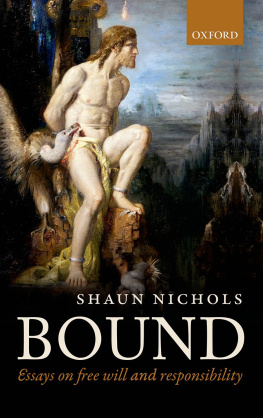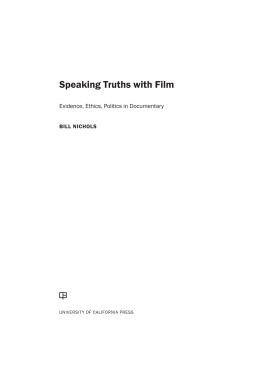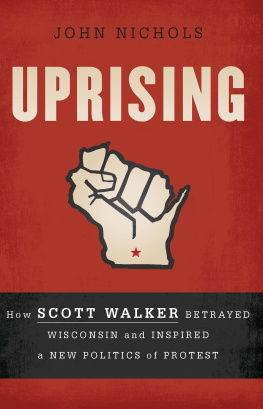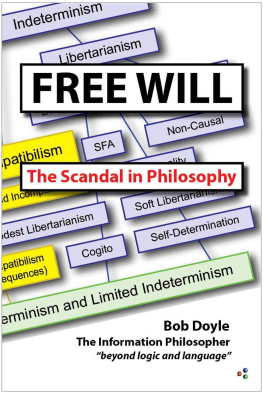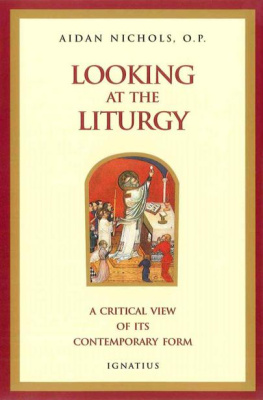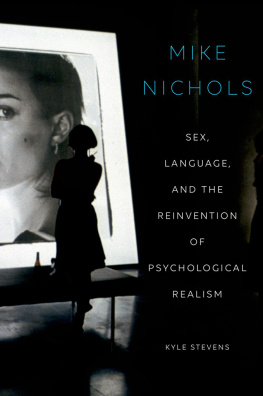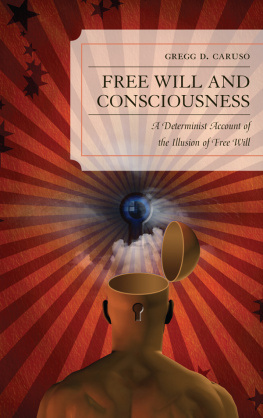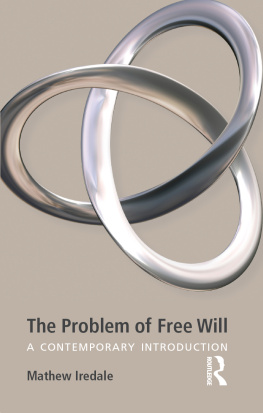Oxford University Press is a department of the University of Oxford. It furthers the University's objective of excellence in research, scholarship, and education by publishing worldwide. Oxford is a registered trade mark of Oxford University Press in the UK and in certain other countries
All rights reserved. No part of this publication may be reproduced, stored in a retrieval system, or transmitted, in any form or by any means, without the prior permission in writing of Oxford University Press, or as expressly permitted by law, by licence, or under terms agreed with the appropriate reprographics rights organization. Enquiries concerning reproduction outside the scope of the above should be sent to the Rights Department, Oxford University Press, at the address above
You must not circulate this work in any other form and you must impose this same condition on any acquirer
Published in the United States of America by Oxford University Press 198 Madison Avenue, New York, NY 10016, United States of America
Acknowledgments
This book has been in progress for over a decade, and Ive accumulated a lot of intellectual debt over the years. For helpful comments on various chapters, Id like to thank Matt Bedke, James Beebee, Mike Bishop, Gunnar Bjornsson, Bruce Bowers, Pascal Boyer, David Brink, Susan Brower-Toland, Sarah Buss, Joe Campbell, Gregg Caruso, Randy Clarke, Juan Comesaa, Jonathan Dancy, Colin Dawson, Oisin Deery, Alison Denham, Steve Downes, Julia Driver, Ian Evans, Brian Fiala, Trisha Folds-Bennett, Jerry Gaus, Michael Gill, Todd Grantham, John Greco, Josh Greene, John Heil, Ted Honderich, Rachana Kamtekar, Josh Knobe, Benji Kozuch, Larry Krasnoff, Uriah Kriegel, Victor Kumar, Trevor Kvaran, Heidi Maibom, Bertram Malle, Ron Mallon, Eric Mandelbaum, Kelby Mason, Michael McKenna, Al Mele, John Mikhail, Thomas Nadelhoffer, Eddy Nahmias, Dana Nelkin, Lex Newman, Tim OConnor, ngel Pinillos, Jesse Prinz, Peter Railton, Henry Richardson, Philip Robbins, David Rose, Adina Roskies, Eric Schwitzgebel, Oliver Sensen, David Shoemaker, Paulo Sousa, Dan Sperber, Steve Stich, Folke Tersman, Hannah Tierney, Mike Valdman, Jonathan Weinberg, and David Yokum.
A few more specific acknowledgments are due. Im indebted to Michael McKenna for several discussions on the contemporary literature on free will. Im positive that Ive failed to respect the subtleties of that complex literature, but thanks to Michael, there are fewer egregious oversights and errors. Josh Knobe has been a wonderful conversant and occasional co-conspirator on these topics for nearly a decade. Josh has been willing to discuss every idea Ive concoctedno matter how outlandishand provided excellent philosophical advice on each occasion. Terry Horgan, Neil Levy, Dominic Murphy, Carolina Sartorio, and Mark Timmons all kindly read the entire manuscript and provided valuable comments.
Im grateful to Peter Momtchiloff both for his patience with the book and for his selection of refereesDerk Pereboom and Tamler Sommers. I couldnt have asked for a better pair of referees. Tamlers relentless focus on big philosophical questions and his attention to writerly issues led to a number of changes. And Derks Living without Free Will is one of my favorite books on free will, so I was delighted to get his advice on the manuscript.
My greatest debts are to John Doris and Manuel Vargas. Manuel read multiple drafts of the manuscript and provided copious helpful comments each time. My own view on free will is close to Manuels view, so it was enormously helpful to get this feedback. John also read and commented on multiple drafts of the manuscript. In addition, John endured hours on the phone discussing everything from the naturalistic fallacy to hierarchical theories of agency. These invigorating discussions led to numerous improvements in the book.
Some portions of the book are drawn from previously published work. I am grateful to the publishers for permission to use material from the following articles:
Folk Intuitions about Free Will, Journal of Cognition and Culture, 6 (2006), 5786.
After Incompatibilism: A Naturalistic Defense of the Reactive Attitudes, Philosophical Perspectives, 21 (2007), 40528.
How Can Psychology Contribute to the Free Will Debate? In J. Baer, J. Kaufman, and R. Baumeister (eds), Are We Free? New York: Oxford University Press, 2008.
The Indeterminist Intuition: Source and Status, The Monist, 95 (2012), 290307.
Brute Retributivism. In T. Nadelhoffer (ed.), The Future of Punishment. New York: Oxford University Press, 2013.
Free Will and Error. In G. Caruso (ed.), Exploring the Illusion of Free Will and Moral Responsibility. Lanham, MD: Lexington Books, 2013.
Process Debunking and Ethics, Ethics, 124 (2014), 72749.
Contents
The problem of free will, like many great philosophical problems, reaches deep into our conception of ourselves and the world. It is not some esoteric problem that crystallizes only for those who have studied philosophy for years. The problem of free will is immediately gripping, and like many vexing philosophical problems, it can induce a wave of philosophical nausea. Determinism provides the most familiar entry point. There is something disorienting about the thought that everything I do is inevitable given the past: what I will say in this sentence, my deliberations themselves, how they unfoldall inevitable. Whether or not I initiate a process of deliberationinevitable. My thought that the initiation of the process is inevitablethat too was inevitable. In contemporary discussions of free will, such vertiginous episodes are not much discussed. But they are, I think, at the heart of what makes free will such a disturbing problem even to otherwise disaffected students.
The fact that the problem of free will is immediately gripping distinguishes it from many philosophical problems. If you tell people that some philosophers, the Logicists, think that mathematics can be derived from logic, the common reaction will be profound indifference. Most people simply dont have intuitions about the logical foundations of mathematics. This is not what happens when people are told that some philosophers maintain that every decision a person makes is an inevitable consequence of what happened prior to the decision. That is a disturbing suggestion even to students whose only interest in Logicism is whether it will be on the final exam. The problem of determinism and free will strikes a deep worry in us. The fact that the problem of free will resonates with people is a psychological fact. This book begins with that psychological fact.
The core of the book attempts to discern the psychological underpinnings of the problem of free will and to explore the implications of the resulting account. This is not a repudiation of traditional philosophical work on the topic. On the contrary, traditional philosophical work on the problem of free will informs almost every aspect of this book. But my hope is that by exploring these issues with different tools, we might gain additional insights into the nature of the problem of free will and the prospects for a solution.

